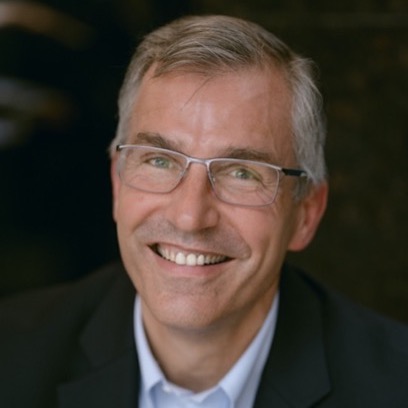Executive Director Article: Exploring the Concept of Trust

Recently, I've been reading Who Can You Trust? How Technology Brought Us Together and Might Drive Us Apart by Rachel Botsman. Botsman, a professor at Oxford University’s business school, is a leading expert on trust. In this book, her research leads her to several important insights. First, as the recent midterm elections reinforced, humanity trusts experts, teachers, and leaders less and less. At the same time, people will turn to digital platforms as authorities in ways we once could have never imagined. For example, if you’ve used an Uber, stayed at an Airbnb, or read online reviews about a book, play, movie, or song, you were participating in a vastly different kind of trust than our ancestors would have engaged. This is why we see such differences in the generational adoption of technological innovations.
Botsman calls this new” platform-based” experience “distributed trust.” No longer do we have to rely on institutions or experts. Now we learn to develop what she calls “trust stacks.” We first trust an idea, then the platform that operationalizes that idea, and then (perhaps) we develop trust for the people we encounter on that platform. Think about every place you swipe a credit card or place an online order, often with full trust in the financial transaction, but think as well of the profound distrust of electronic voting. Hopefully, verification mechanisms are built into such systems, as we recently saw with Twitter’s” blue check” fiasco. So, what can we trust?
Botsman cites work from several years ago by Coye Cheshire, a professor at UC Berkeley, who argued that we were seeing two distinct forms of trust emerging in light of social media’s advances: interpersonal trust (human to human) and system trust (human to system). The former has grown increasingly difficult with the breakdown of local interdependence. While the latter has offered efficiency and convenience, it has also raised several questions about the one-way nature of such relationships. For example, systems cannot “trust” human beings; only people can trust people. When we enter our credit card information into an online platform, what and who are we trusting?
Most of us don’t come to system trust easily. It takes what Botsman calls” trust leaps,” a willingness (or perhaps willfulness) to trust when our rationale feels ambiguous, or that which we choose to trust is more complex than we can fully understand.
It was this point that made me pause in thinking about the work of ACPE. Whether you are providing therapy to a client or leading an interpersonal relations (IPR) group, at some point, all participants must trust the process. We must consent to the very real evidence that thousands have gone before us and found the process engaging, efficacious, and even transformational. But why should a student or a client who has been raised in this era of distributed trust “trust the process”? How can they trust that the process will not damage them, for they have heard tales of therapy or CPE that was a miserable experience, even as they have heard stories of rich learning and growth?
I heard one educator talk about developing “on-ramps” for students, but not necessarily the same on-ramp for everyone. Each ramp allows students to enter the flow at their pace and speed, establishing their mile and growth markers. Similarly, a therapist once described the initial therapy sessions as resembling the early part of ET, when Elliot laid the trail of Reese’s Pieces for ET to follow, building more trust with each bite.
What I would love to see Botsman explore is how education, socialization, and formation lead people to the ever-evolving concept of trust. In terms of technological advances, it is too simplistic to attribute this to generational differences. Many Boomers are tech-savvy, while some Gen Z voices are critical of our digital ways of being. And how can those raised in this age of distributed trust come to make themselves vulnerable to a process that is so human, often so intimate?
Of course, these are also questions for ACPE as you begin to turn your eyes toward new leadership. What do you envision for ACPE’s future? Where do you hope the Board will go in its strategic planning process? What qualities, characteristics, and attributes do you hope to recruit to serve with you that can help make those strategic goals become lived realities? Who among your colleagues will you trust to make such decisions, and how willing will you be to publicly support them in their efforts? What can you do with your colleagues to make” trust the process” more than just a slogan, to make it the shared reality of a professional association whose work is so desperately needed in this divided and aching world? In this world, interpersonal trust has become such a precious, precious experience.
